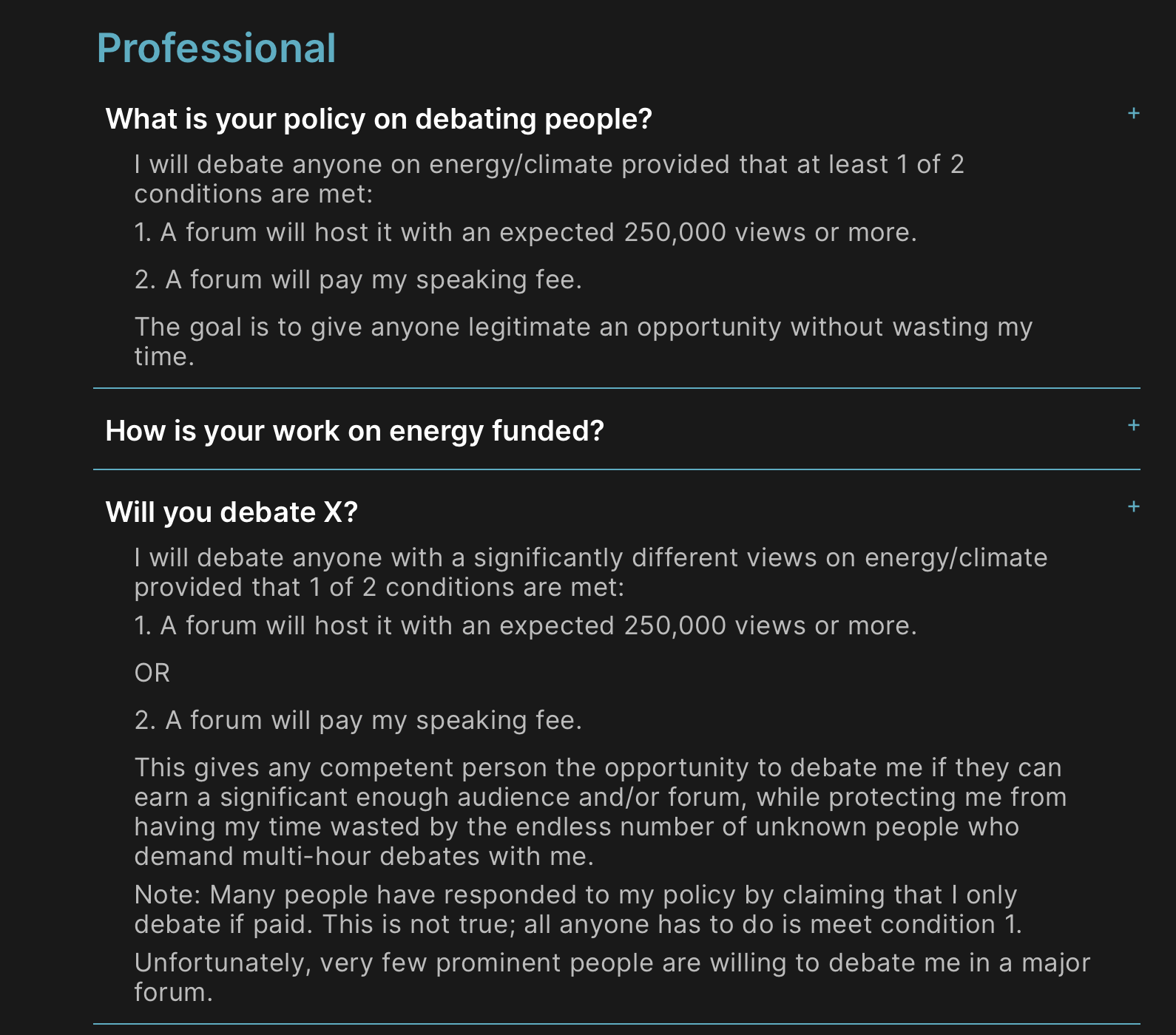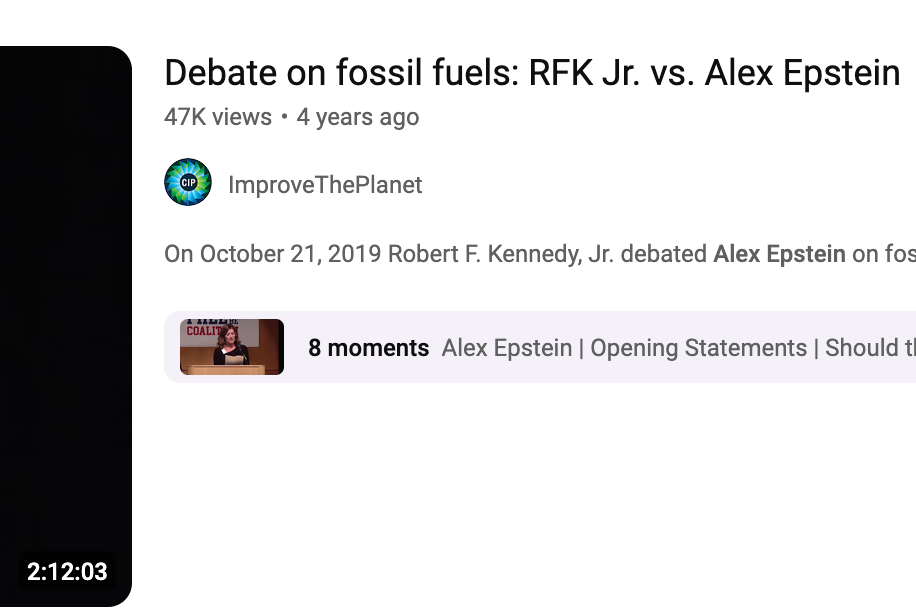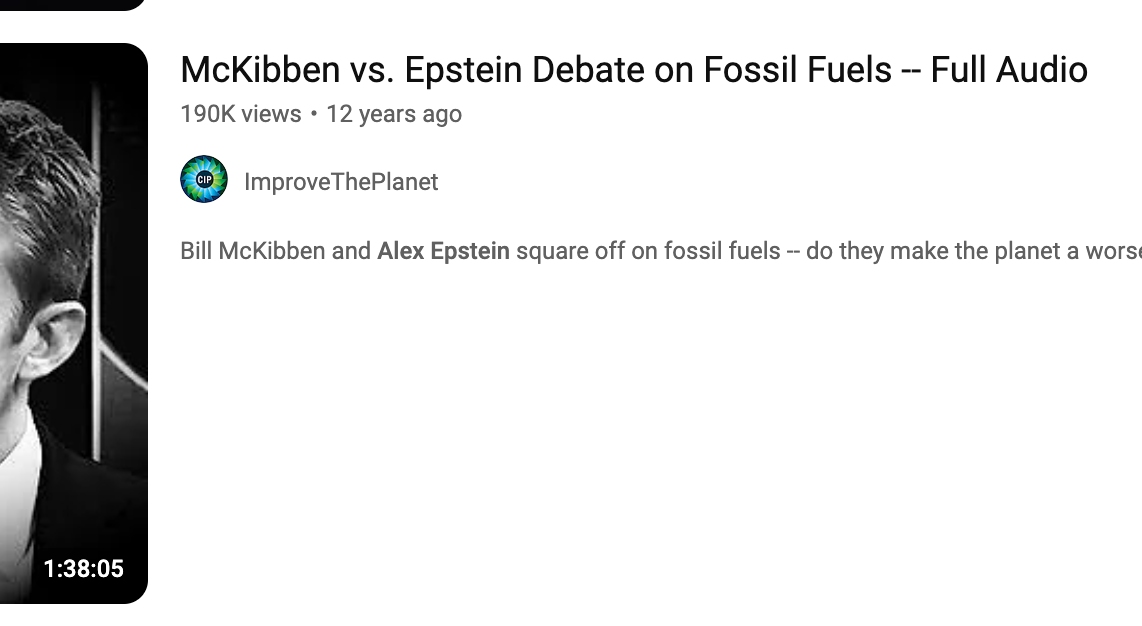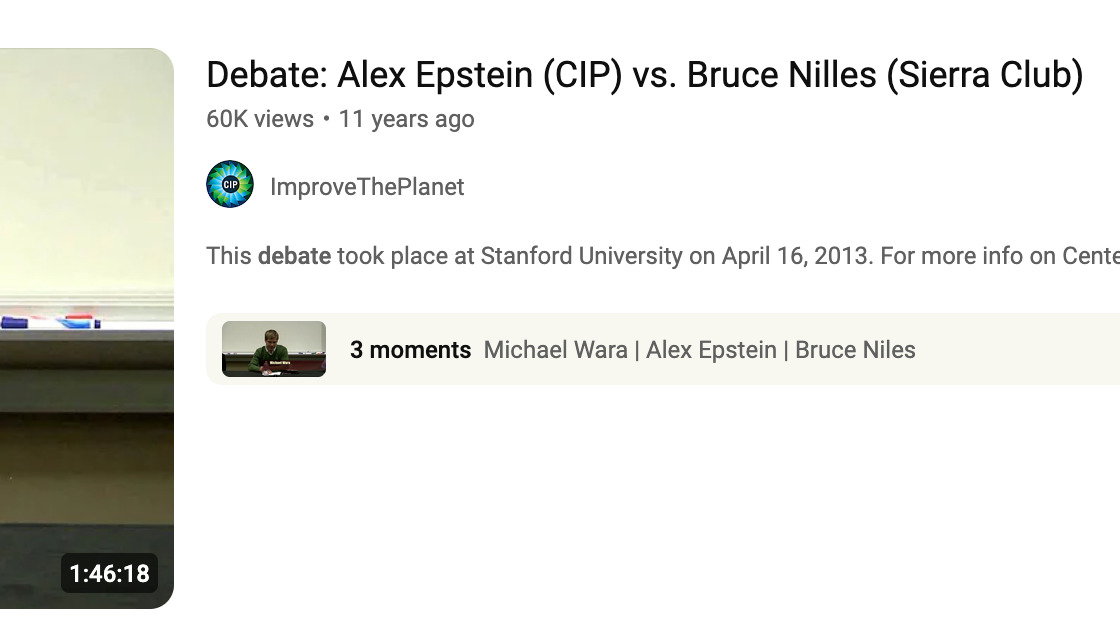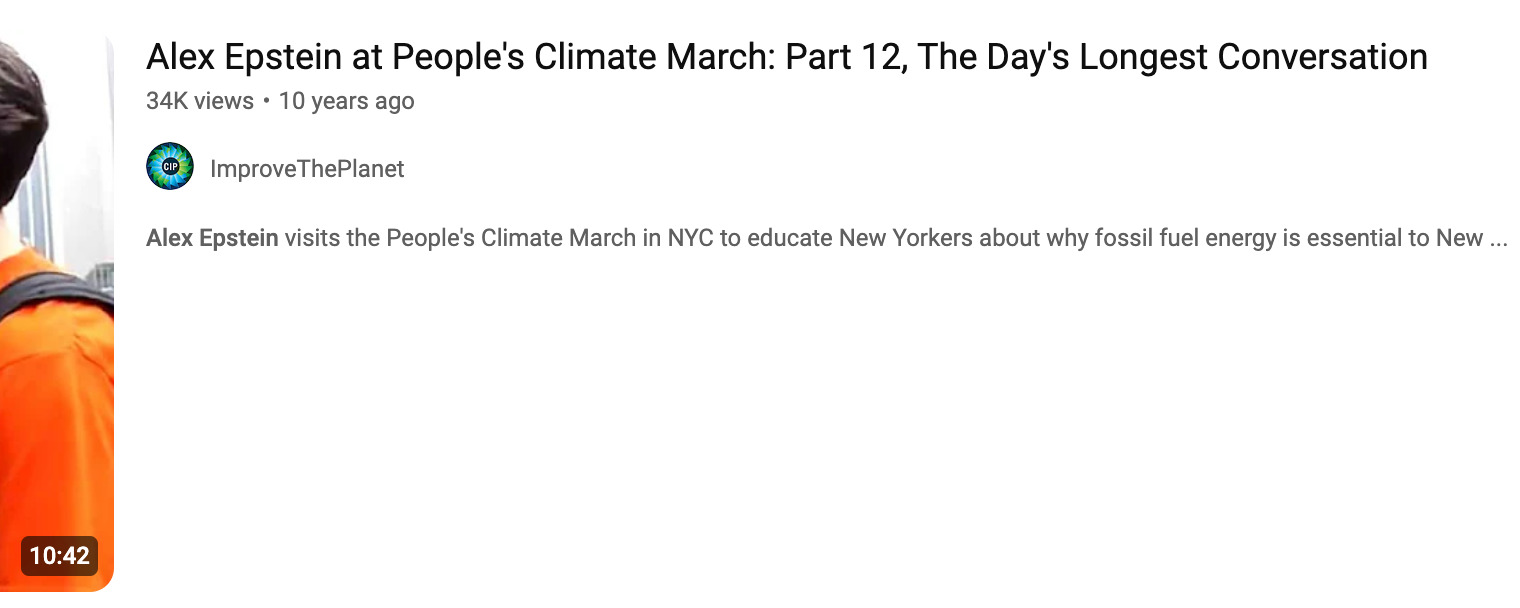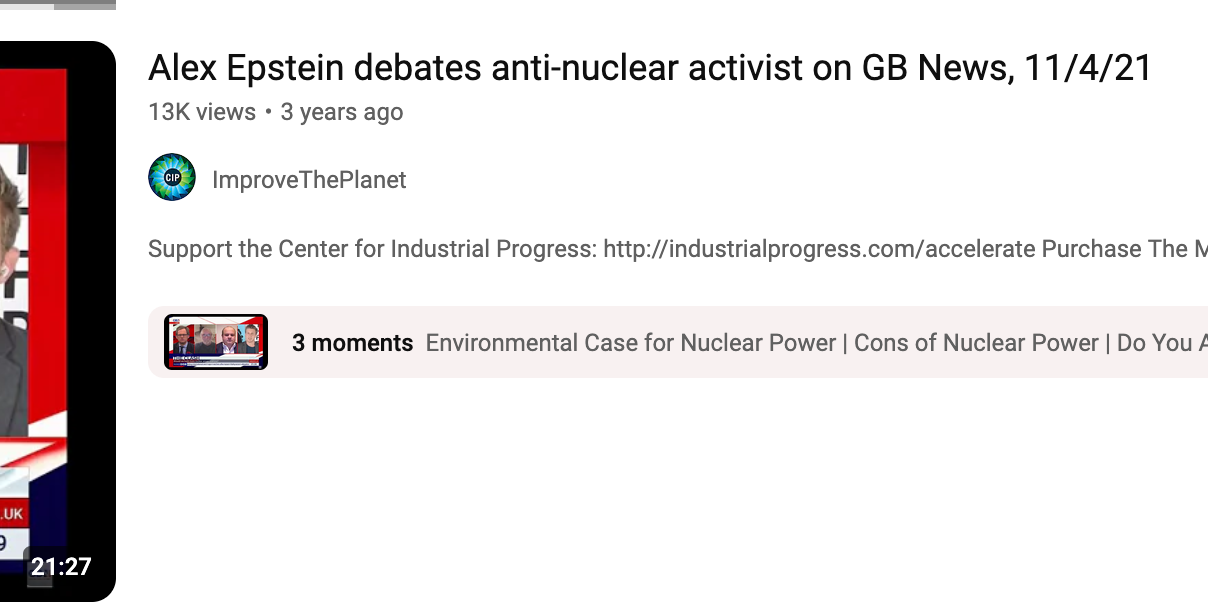I found an intellectual with a published debate policy: Alex Epstein. Although I’ve worked with him in the past, I don’t know if the creation of this debate policy had any connection with my ideas or not. (It’s possible he doesn’t know either even if there is a connection. I wouldn’t be surprised if someone read some of my stuff and then said something to him related to debate policies without naming me. A lot of my readers are fans of Epstein.)
Although I don’t love this debate policy (I think it’s very restrictive and is inadequate for Paths Forward), I acknowledge it has major advantages over what most intellectuals offer (no written policies, no clarity).
One concern I have is about transparency: I don’t know if he keeps his word or not. Supposing he didn’t, how/where would I find out? As far as I know, he doesn’t have any sort of open forum where people could complain that they met the criteria but he still wouldn’t debate them. Nor does he have anywhere he publishes all the debate requests he receives and his judgment of whether they meet the criteria or not.
His criteria also contain some ambiguity. 250,000 views over what time period? Also views aren’t guaranteed, so how reliable does success at those viewer numbers have to be, and what would be good enough to convince him?
I’d like to debate Epstein about whether Silent Spring is a good book, among other things, but I don’t meet the criteria. He was also unwilling to debate me when I was doing free work for him (and had a lot less disagreement with him, but still some), which I think is unreasonable and is one of the main reasons I stopped working with him. If you think someone is really smart, tell them so, meet them in person to chat, use their research in your books and debates and publish some of their writing, then you don’t need to avoid debating them because of “protecting me from having my time wasted by the endless number of unknown people who demand multi-hour debates with me”. I wasn’t then, and still today am not, unknown to Epstein, so the reasoning he gives for his policy doesn’t explain why he wouldn’t debate me and may be misleading (which brings us back to the transparency concern above). I believe a better debate policy would allow more ways of proving your worth than just paying a lot of money or having a huge audience. One important issue is whether a policy enables upwards mobility of merit or not (this policy doesn’t because it basically excludes everyone with merit who hasn’t already had major success).
